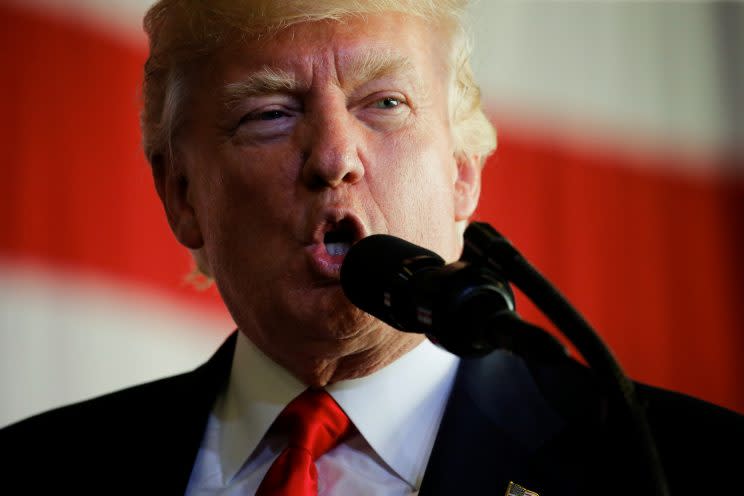Trump: Change Senate rules ‘immediately’ to pass GOP plans

President Trump is urging the Senate to lower the voting threshold needed to break a filibuster and pass legislation to 51 so that the Republicans can approve their proposed health care and tax reform agenda as soon as possible.
On Tuesday morning, Trump took to social media pleading for Republican senators to make this change immediately and suggested that the Democrats would do the same if they were in the majority.
The U.S. Senate should switch to 51 votes, immediately, and get Healthcare and TAX CUTS approved, fast and easy. Dems would do it, no doubt!
— Donald J. Trump (@realDonaldTrump) May 30, 2017
Trump made a similar appeal for the so-called nuclear option to bypass a Senate filibuster earlier this month.
The Republicans currently hold 52 of the 100 seats in the Senate, whereas the Democrats hold only 46 seats. Independent senators — Angus King of Maine and Bernie Sanders of Vermont — hold the final two seats, though they caucus with the Democrats and have liberal views.
In both the Senate and the House of Representatives, lawmakers need a simple majority (51 percent or more) to approve a bill. But in the Senate, deliberations can last as long as members are willing to discuss an issue — delaying a vote indefinitely. A supermajority can break a filibuster by invoking the cloture rule with a three-fifths vote (60 out of 100).
The current rules hamstring the GOP health care legislation, as both chambers work through another process, known as reconciliation, which allows the Senate to pass certain budget-related bills with the simple majority.
If the threshold were lowered to 51 percent, then the Republican majority would likely be able to rush votes on the American Health Care Act, which would effectively repeal and replace the Affordable Care Act (or Obamacare), and a package expected to be focused on tax cuts.
But this would be a risky maneuver because Democrats would enjoy the same luxury should they retake the majority of the Senate’s seats. In addition, many GOP legislators oppose the idea of changing this rule on principle, even though it would be politically expedient in the short term.
Though Senate Majority Leader Mitch McConnell invoked the option to approve the nomination of Neil Gorsuch to the Supreme Court in April, he assured senators he would not ditch the filibuster power to pass legislation.
And because of fractures in the GOP ranks, it’s not clear that the Republican agenda could make its way through the Senate even if the filibuster were scrapped.
“I don’t know how we get to 50 [votes] at the moment,” McConnell said last week of the health care overhaul.
Read more from Yahoo News:



